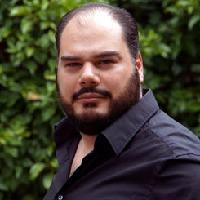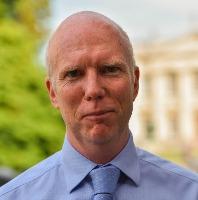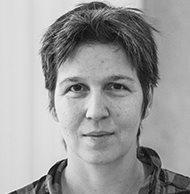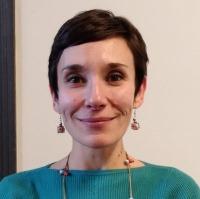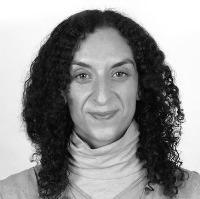Blog
Unless otherwise stated, content is shared under CC-BY-NC Licence
Design, Deliver, Embed: Establishing Digital Transfer at the UK Parliamentary Archives
Chris Fryer is Senior Digital Archivist at the UK Parliamentary Archives
The Parliamentary Archives organises UK Parliament's memory. We are a shared service, providing an archives and records management service to the administrations of the House of Commons and House of Lords. We hold records of unique national importance, often defining watershed moments in the history of the United Kingdom (for example the UNESCO Memory of the World recognised Bill of Rights from 1689). Core procedural and administrative records safeguarded due to transfer of corporate digital records represent a continuation of this heritage.
The types of records produced internally are unique, providing valuable background and context for Parliament’s decisions and actions. With the end of the print-to-paper policy in Parliament in 2012 and the introduction of a corporate Electronic Document and Records Management System (EDRMS), the Parliamentary Archives has long recognised the need for a robust, end-to-end process for digital transfer directly from internal information systems.
Break up with legacy systems, there’s a new solution in town
Ben Saxton is Head of Sales at Formpipe Life Science
By 2020, 50% of all current applications in the data centre will be retired. In fact, between 2016 and 2020, IT organisations will decommission more than three times the number of applications they have previously since 2000. This has resulted in the need for organisations to retire existing applications and seek out a future-proof solution, and fast. What was once an afterthought, retaining business assets and developing a plan for maintaining future records, is now a business-critical task.
But, seeking out a reliable solution comes with its share of hurdles. As enterprises modernise their application portfolios, they face a growing challenge in finding cost-effective solutions to retire their current applications and retain access to historic data that has yet to be migrated to a replacement solution.
“Do You DP?”
Antonio G. Martinez is CEO & Founder of LIBNOVA and is based in Madrid, Spain
How many times have you heard this question? When it comes to Digital Preservation though, there’s no such thing as “to do or not to do”. Having worked with and advised all kinds of organisations, from the largest to the most compact, we’ve learnt that almost anything can be considered digital preservation. This means that “Do you DP?” is a hugely misleading question. A question that only allows for binary answers – a yes or a no, a 0 or a 1 – and makes the reply totally irrelevant to the truth. Understanding this key concept is essential for organisations to be able to move forward.
We have to take a step back and take in the full picture so we can then make others -colleagues and stakeholders- understand that there is so much depth to this relatively recent newcomer, digital, to the preservation world that it is not a simple yes or no, but a “What D.P. level shall we go?”. We have to share our vision and make them (colleagues and stakeholders) understand that we can digitally preserve things in so many different ways and on so many different levels that the simple question of “Do you D.P.?” renders the answer obsolete. You see, we all know that every little bit counts, and the more bits we actively layer our preservation cake with the more safely we preserve. But do our colleagues and stakeholders know this? We have to make the case that as we move up layers our digital assets are safer and safer. So the question should be, “Up to what level do we need to D.P.?”.
Archiving Crossrail
Alistair Goodall is Head of IT for Crossrail Ltd and Transport for London
Crossrail is an amazing project to be part of and, when the central section opens next year, visitors to London are going to see stunning new stations and travel on new 200 metre long trains capable of carrying up to 1,500 people.
My team in IT has been responsible for most of the enterprise wide applications which are needed on a mega-project. Some of these we have worked with the vendors over the last 10 years to develop and configure, others have been developed in house by our team to support specific business needs (such as vehicle movement planning and agreements). These applications now hold over 10 years of project data across all business areas including health and safety, commercial, delivery, programme controls and technical information.
PREMIS News & Highlights for 2018
Karin Bredenberg is Chair of the PREMIS Editorial Committee and she works for Riksarkivet/Swedish National Archives
It’s been a very productive year for the PREMIS Editorial Committee!
We’ve brought several projects to fruition and embarked on a number of new efforts since our last WDPD report on PREMIS and Linked Data. As you probably know, we released version 3.0 of the PREMIS Data Dictionary in 2015 and since then we’ve devoted a lot of our resources towards modelling and completing an OWL ontology, creating supporting documentation for the new ontology, and updating the related preservation vocabularies on LC’s Linked Data Service. We are proud to say these are all available now!
In Certification I believe or... Are we doing it YET AGAIN?
Yvonne Tunnat is Digital Preservation Project Manager at Leibniz Information Centre for Economics in Germany
“Are we doing it YET AGAIN?” is the question I would most certainly ask if I were not the one most likely to suggest that we go the next level of certification, or, interchangeably, for the more recent or updated version of a certain certification level.
We have gone through the Data Seal of Approval in 2015, have acquired the nestor Seal in 2017, and at the end of 2018 we will hand in our documentation for the Core Trust Seal. We would certainly have found found us another nice certification process in 2016, but as I was away for maternal leave for a great chunk of that year, we were too busy just archiving stuff.
So, why are we constantly heading for another certificate to prove how trustworthy our Digital Archive is?
Launch of the New Digital Archiving Platform at the National Archives of France: Act I!
Violette Lévy and Béatrice Hérold work at the National Archives of France in Paris
Confronted with the ever-growing surge of digital services used by government agencies, the aim of the ADAMANT Project (Administration of archives and their metadata at the National Archives over time) is to preserve the integrity of the resulting digital archives and to ensure they remain permanently reliable, intelligible and accessible, which is the basic mission of the National Archives.
 After two years of gestation, the new platform will launch on November 29, 2018. This first version will focus on the collection and management of digital archives. Versions 2 and 3, expected to be rolled out in 2019 and 2020 respectively, will focus on the consultation and reuse of these archives by the public, as well as long-term preservation.
After two years of gestation, the new platform will launch on November 29, 2018. This first version will focus on the collection and management of digital archives. Versions 2 and 3, expected to be rolled out in 2019 and 2020 respectively, will focus on the consultation and reuse of these archives by the public, as well as long-term preservation.
Project Preview: “Weaving Digital Stewardship into the Organizational Fabric”
This post was written by: Shira Peltzman, Digital Archivist for the University of California, Los Angeles (UCLA); Julia Kim, Digital Assets Specialist, Library of Congress; Peggy Griesinger, Metadata Librarian, George Mason University Libraries; Vicky Steeves; Librarian for Research Data Management and Reproducibility, New York University; and Karl-Rainer Blumenthal, Web Archivist, Internet Archive.
As digital preservation programs and stewardship initiatives mature, so may they become more dysfunctional.
One of the most important takeaways from the National Digital Stewardship Alliance (NDSA) staffing surveys conducted in 2012[1] and 2017[2]-- discussed here last World Digital Preservation Day -- is the increasing dissatisfaction among stewards with the way that digital preservation is organized at their respective institutions.
Perceptions that the digital preservation function at their organizations “works well” among respondents to the NDSA Staffing Surveys of 2012 and 2017.
Bit by bit, byte by byte: web archaeology going strong in the Netherlands!
Tjarda de Haan is Guest Curator for E-culture at Amsterdam Museum in the Netherlands
Since winning the Digital Preservation Award 2016 in the category The National Archives Award for Safeguarding the Digital Legacy in December 2016 our project accelerated! We have published the 'DIY Handbook for Web Archaeology' and the 'FREEZE! A manifesto for safeguarding and preserving born-digital heritage' and with this we have put web archaeology on the map in the Netherlands. Many initiatives took up the challenge. The KB National Library of the Netherlands has done some remarkable excavations, journals have published articles about web archaeology and the Journal for Media History will publish a special issue next year 'Media history for the future: Web Archaeology'.
Heritage preservation of contemporary dance and choreography
Suzan Tunca is a Dance Researcher for ICKamsterdam and this project was undertaken in collaboration with Motion Bank
Heritage preservation of contemporary dance and choreography through research and innovation in digital documentation and annotation of creative processes
ICKamsterdam and Motion Bank.
ICKamsterdam and Motion Bank join forces to optimize caring for the heritage of contemporary dance and choreography through the invention of new forms of digital documentation, notation and transmission of embodied knowledge. This unique collaboration integrates the verbal movement language research of Emio Greco I PC and ICKamsterdam with the annotation systems and goals of Motion Bank software development. In this way digital preservation media development is linked directly to the potential of establishing working vocabularies specific to various choreographers and performing artists. Documenting and annotating processes in performance creation enables the safeguarding of ephemeral and ineffable artistic contents in dance through time.
















































































































































